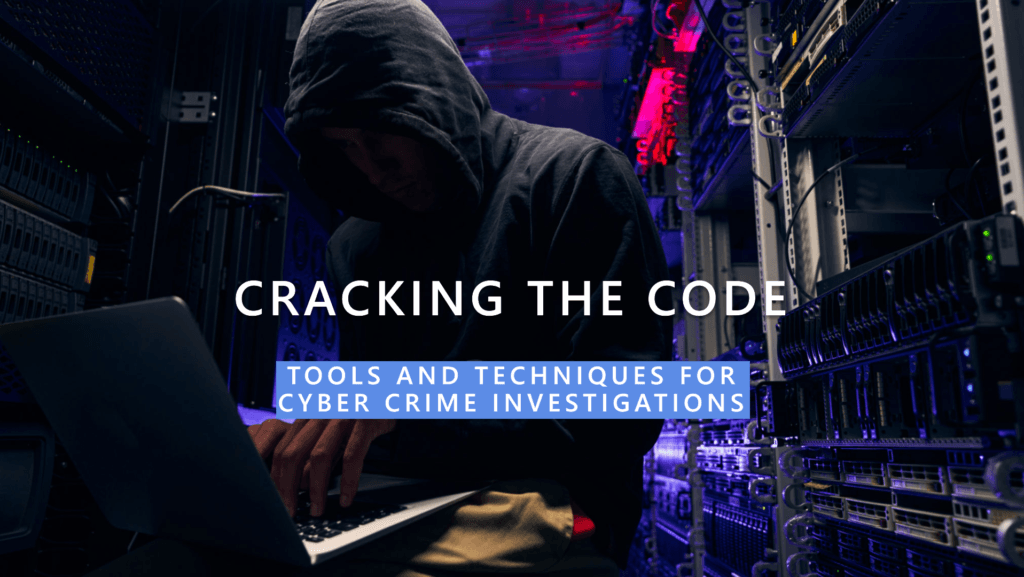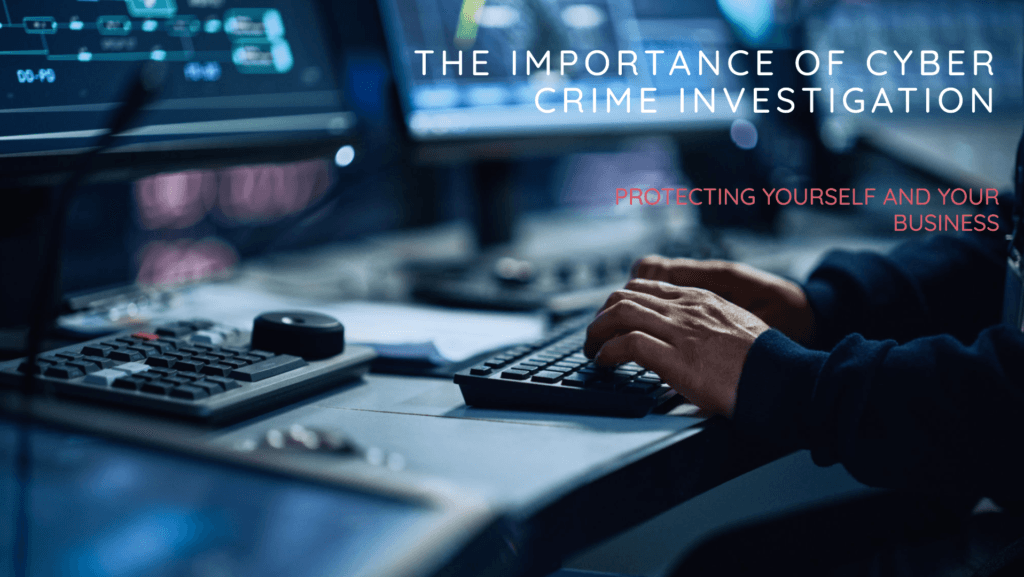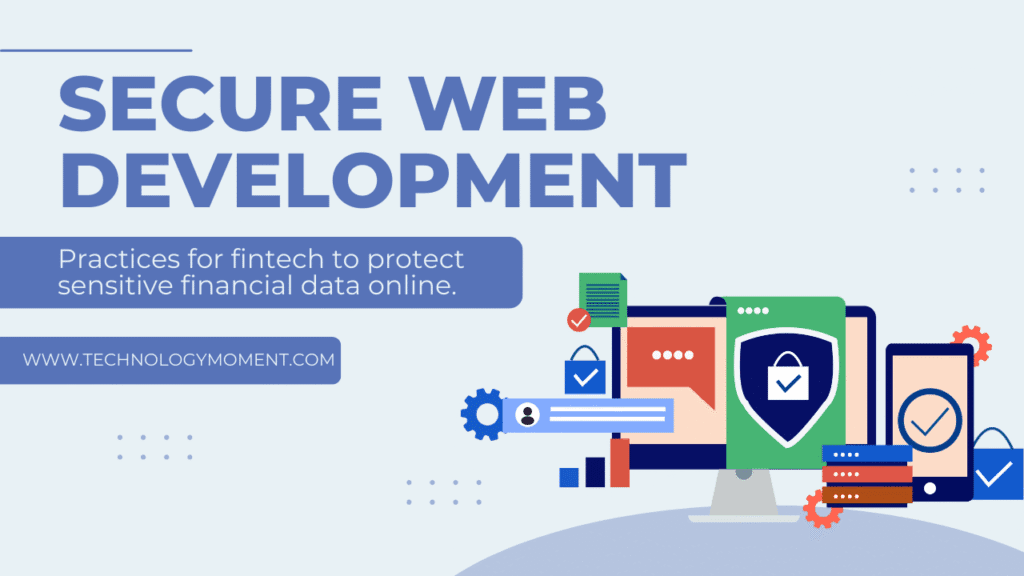In today’s digital age, cyber threats lurk around every corner, making the role of a Cyber Crime Investigator more vital than ever. At Technology Moment, we dive deep into the world of digital forensics, exploring how these modern-day detectives work tirelessly to uncover hidden cyber threats, track down cybercriminals, and protect sensitive information. Join us as we uncover the skills, tools, and challenges these experts face while safeguarding the digital world.
In today’s digitally driven world, the internet has become an essential part of our lives, transforming the way we communicate, work, and access information. However, this digital transformation has also paved the way for new forms of criminal activity—commonly referred to as cyber crimes. These crimes include hacking, identity theft, online fraud, and ransomware attacks, which can lead to significant financial losses, data breaches, and emotional distress for victims.
This rise in cyber threats has made the role of a Cyber Crime Investigator more critical than ever before. These professionals act as digital detectives, working tirelessly to uncover evidence, trace cyber criminals, and assist law enforcement agencies in bringing perpetrators to justice. Their expertise in digital forensics, data analysis, and cyber laws makes them indispensable in today’s cyber landscape.
The job of a cyber crime investigator is not just about solving crimes but also about preventing future threats. By identifying vulnerabilities in systems and educating the public on safe online practices, they contribute significantly to a safer digital world.
This article will dive deeper into the world of cyber crime investigators, their responsibilities, required skills, tools, challenges, and the crucial impact they have in safeguarding digital spaces. Whether you are considering a career in cyber crime investigation or simply want to understand how these professionals protect society, this comprehensive guide will provide valuable insights.
What is Cyber Crime?
Cyber crime refers to any criminal activity conducted using digital devices, computer systems, or the internet. It involves offenses where a computer or network is either the target, the tool, or both. Cyber crimes can cause significant harm, ranging from financial losses to breaches of personal privacy and even national security threats.
Defining Cyber Crime
At its core, cyber crime involves illegal actions carried out in the digital world. These crimes often exploit technology vulnerabilities to harm individuals, businesses, or governments. Cyber crimes can occur on various platforms, including websites, social media, emails, and personal devices.
Key Characteristics of Cyber Crime:
- Digital Medium: Crimes are committed using digital devices like computers, smartphones, and tablets.
- Anonymity: Criminals often hide their identity using encryption and VPNs.
- Global Nature: Since the internet is borderless, cyber crimes can affect victims worldwide.
Table of Contents
Common Types of Cyber Crime
Cyber crime takes many forms, each targeting different victims and exploiting different vulnerabilities. Some of the most common types include:
1. Phishing Attacks:
- Fake emails or messages designed to steal sensitive information such as passwords and credit card details.
- Example: An email claiming to be from a bank asking for login credentials.
2. Hacking:
- Example: A hacker breaking into a company’s server to steal customer data.
3. Ransomware Attacks:
- Malicious software that locks data and demands a ransom for its release.
- Example: The WannaCry ransomware attack that affected thousands of systems globally.
4. Online Fraud and Scams:
- Deceptive schemes aimed at tricking people into giving away money or information.
- Example: Fake lottery scams asking for an “advance payment” to claim a prize.
5. Cyberbullying and Harassment:
- Using digital platforms to threaten, intimidate, or harm individuals.
- Example: Harassing messages on social media platforms.
6. Distributed Denial of Service (DDoS) Attacks:
- Overloading a server or network with excessive traffic to crash it.
- Example: Attacking a company’s website to disrupt its services.
Impact of Cyber Crime
Cyber crime can have devastating effects on individuals, businesses, and societies:
- Financial Loss: Billions of dollars are lost annually due to scams and data breaches.
- Emotional Distress: Victims of cyberbullying and identity theft often suffer emotional trauma.
- Data Breaches: Personal and corporate data leaks can damage reputations and trust.
- National Security Threats: Cyber terrorism can disrupt critical infrastructure and compromise national defense systems.
Who is a Cyber Crime Investigator?
A Cyber Crime Investigator is a specialized professional trained to uncover and solve digital crimes. They work like digital detectives, focusing on investigating illegal activities that occur in the online world or involve computer systems. Their primary role is to identify, analyze, and collect evidence related to cyber crimes while ensuring that justice is served and digital security is maintained.
Core Responsibilities of a Cyber Crime Investigator:
A Cyber Crime Investigator’s duties revolve around tracking, investigating, and preventing cyber crimes. Some of their primary responsibilities include:
- Identifying Cyber Crimes: Recognizing various cyber threats such as data breaches, hacking incidents, identity theft, and financial fraud.
- Collecting Digital Evidence: Gathering critical evidence from digital devices, including files, emails, server logs, and network activity.
- Analyzing Cyber Attacks: Using advanced forensic tools to determine how an attack occurred, who was responsible, and the extent of the damage.
- Tracing Cybercriminals: Tracking the source of the attack, whether through IP addresses, encrypted data, or malicious code patterns.
- Assisting Law Enforcement: Collaborating with police, federal agencies, and legal teams to ensure the evidence can hold up in court.
- Reporting Findings: Preparing detailed reports that document findings and can be used in legal proceedings.
- Preventing Future Attacks: Offering recommendations to organizations and individuals on how to improve their cybersecurity measures.
Importance of a Cyber Crime Investigator’s Role:
The significance of a Cyber Crime Investigator cannot be overstated in today’s digital world. Their work ensures:
- Justice for Victims: Victims of cyber crimes, such as identity theft or financial fraud, often rely on these professionals to recover stolen data and seek justice.
- Data Protection: They help prevent further breaches by identifying security loopholes.
- Maintaining Digital Trust: Their efforts are vital in keeping the online world safe and secure for both individuals and businesses.
- Fighting Cyber Terrorism: Investigators play a crucial role in preventing cyber terrorism and attacks on national infrastructure.
Skills Required for a Cyber Crime Investigator
A Cyber Crime Investigator requires a diverse set of skills to effectively solve digital crimes, gather evidence, and ensure justice. These skills are a blend of technical expertise, critical thinking, and legal knowledge. Let’s break them down in detail:
1. Technical Expertise
A strong foundation in technology is essential for a cyber crime investigator. Since most cyber crimes involve digital devices and networks, investigators need to understand how these systems work.
- Computer Forensics: The ability to analyze digital devices for evidence, such as hard drives, USBs, and smartphones. Familiarity with forensic tools like EnCase and FTK Imager is crucial.
- Networking Knowledge: Understanding how data travels through networks and how to trace IP addresses or detect unauthorized access points.
- Operating Systems Mastery: Expertise in different operating systems, including Windows, macOS, Linux, and even mobile platforms like Android and iOS.
- Programming Skills: While not mandatory, familiarity with languages like Python, C++, or Java can be advantageous for tasks like malware analysis and script examination.
2. Analytical Skills
Cyber crime investigations involve sifting through large amounts of data to identify patterns and evidence. Strong analytical skills help in making sense of complex datasets and finding the root cause of a digital crime.
- Data Analysis: Ability to interpret logs, digital trails, and metadata.
- Critical Thinking: Breaking down complex cases and focusing on key elements.
- Pattern Recognition: Identifying behavioral patterns in cyber attacks, such as repeated IP addresses or recurring malware signatures.
3. Legal Knowledge
Since cyber crime investigations often lead to legal proceedings, a cyber crime investigator must understand the legal aspects of their work to ensure evidence is collected and handled correctly.
- Cyber Law Understanding: Familiarity with laws like the Computer Fraud and Abuse Act (CFAA) and the General Data Protection Regulation (GDPR).
- Chain of Custody: Ensuring the integrity of evidence by following proper documentation and handling procedures.
- Privacy Regulations: Respecting data privacy laws while conducting investigations.
4. Attention to Detail
Small details can make or break a case. Cyber criminals often try to hide their tracks, so an investigator must be meticulous in examining every aspect of the digital evidence.
- Thorough Examination: Ensuring no piece of evidence is overlooked.
- Documentation Skills: Keeping detailed records of all findings for legal purposes.
5. Communication Skills
Clear communication is vital when working with law enforcement, legal teams, and victims of cyber crimes.
- Report Writing: Crafting detailed, yet understandable investigation reports for use in court.
- Collaboration: Working effectively with other professionals, including IT teams and law enforcement officers.
6. Problem-Solving Ability
Cyber crime investigators often face unique and evolving challenges. Quick thinking and creative problem-solving are essential for success.
- Adapting to New Threats: Staying updated with emerging cyber threats.
- Creative Investigation Techniques: Developing innovative approaches to trace cyber criminals.
7. Ethical Integrity
Since investigators handle sensitive data, they must adhere to strict ethical standards and avoid misuse of information.
- Confidentiality: Maintaining the privacy of the victims and the evidence.
- Accountability: Working within the boundaries of the law and professional standards.
How to Become a Cyber Crime Investigator
These professionals need to develop both technical skills and legal knowledge to effectively investigate and resolve digital crimes. Here’s a detailed breakdown of the steps you need to take to pursue this career path:
1. Educational Path
The journey typically starts with formal education in fields related to computer science and criminal justice. While there is no single degree for cyber crime investigation, the following degrees provide a strong foundation:
- Bachelor’s Degree in Computer Science or Cyber Security: Focuses on technical aspects like programming, network security, and data analysis.
- Criminal Justice Degree: Covers the legal aspects, ethics, and investigative techniques essential for evidence handling.
- Information Technology (IT) Degrees: Provide an understanding of system infrastructures and data management.
For those seeking higher positions or specialization, a Master’s Degree in Cyber Forensics or Digital Security can be highly beneficial.
2. Certifications and Training
Certifications validate your expertise and improve job prospects in the cyber crime investigation field. Some of the most recognized certifications include:
- Certified Information Systems Security Professional (CISSP): Covers information security and risk management.
- Computer Hacking Forensic Investigator (CHFI): Specializes in digital forensics and evidence collection.
- GIAC Certified Forensic Analyst (GCFA): Emphasizes advanced forensic analysis skills.
Additionally, attending workshops, boot camps, and specialized digital forensics training is recommended to stay updated with the latest tools and techniques.
3. Gaining Experience
Practical experience plays a crucial role in becoming a proficient Cyber Crime Investigator. Here’s how to build it:
- Internships: Many law enforcement agencies and cyber security firms offer internship programs.
- Entry-Level Jobs: Positions like IT support, network security analyst, or junior forensic analyst can help build foundational skills.
- Volunteering: Assisting non-profit organizations focused on cyber security can provide real-world exposure.
Hands-on experience with forensic tools like FTK (Forensic Toolkit), EnCase, and Autopsy is also essential.
4. Developing Essential Skills
A successful cyber crime investigator must master a combination of technical and soft skills:
- Technical Proficiency: Mastery of operating systems, network protocols, and cyber forensics tools.
- Attention to Detail: Ensuring no digital evidence is overlooked.
- Communication Skills: Writing detailed reports and explaining technical findings to legal authorities.
5. Understanding Legal Frameworks
Since cyber crime investigation often involves sensitive data, understanding cyber laws and digital rights is critical. Key areas to focus on include:
- Chain of Custody: Proper handling of evidence to ensure its admissibility in court.
- Data Privacy Laws: Familiarity with GDPR, HIPAA, and local cyber crime legislation.
- International Collaboration: Cyber crimes often cross borders, requiring knowledge of global laws and treaties.
6. Building a Professional Network
- Organizations: International Association of Computer Investigative Specialists (IACIS).
- Attending Conferences: Cyber security events like DEF CON and Black Hat provide learning and networking opportunities.
- Online Communities: Engage with forums and LinkedIn groups for cyber security discussions.
7. Continuous Learning and Staying Updated
The field of cyber crime investigation evolves rapidly with emerging technologies and threats. To stay competitive:
- Regularly update skills with advanced certifications.
- Stay informed about emerging threats and hacking techniques.
- Participate in capture-the-flag (CTF) challenges and simulation labs for practical experience.
Tools and Techniques Used in Cyber Crime Investigations
Cyber crime investigations rely heavily on specialized tools and techniques to identify, track, and prosecute criminals who operate in the digital world. These tools are designed to handle the unique nature of digital evidence and allow investigators to recover crucial data, decrypt communications, and track online activities. Below are some of the primary tools and techniques used in cyber crime investigations:

1. Forensic Software
Forensic software is one of the most critical components in cyber crime investigations. These tools are designed to capture, preserve, and analyze digital evidence without altering or damaging it.
- EnCase Forensic: One of the leading forensic software tools, EnCase allows investigators to collect data from hard drives, mobile devices, and cloud storage. It ensures the integrity of digital evidence and can help uncover deleted files, passwords, and encrypted data.
- FTK (Forensic Toolkit): This software offers a powerful solution for digital investigations, allowing investigators to search, recover, and analyze evidence from various devices. It can process large volumes of data, search for keywords, and recover deleted files.
- Autopsy: This open-source tool is frequently used for analyzing hard drives, performing keyword searches, and recovering deleted files. It’s known for its ease of use, making it ideal for investigators who are new to digital forensics.
These forensic tools help investigators trace the actions of cyber criminals, recover lost or hidden data, and ensure the authenticity of the evidence.
2. Encryption Breaking Tools
In many cyber crimes, particularly in cases of hacking or data theft, criminals use encryption to hide their activities. Encryption breaking tools are used by cyber crime investigators to decode encrypted files, emails, and communications.
- Hashcat: One of the most widely used tools for cracking passwords, Hashcat uses various algorithms to break encrypted data. Cyber crime investigators use it to decode password-protected files and gain access to evidence stored in encrypted formats.
- John the Ripper: This tool is often used when investigators are unable to access important files or emails that contain critical information for their case.
While cracking encryption is a complex task and sometimes legally restricted, these tools are essential when pursuing serious cyber crimes involving financial fraud, hacking, or identity theft.
3. Data Recovery Tools
In cyber crime investigations, data recovery tools are necessary to recover lost or deleted data from devices that have been tampered with or formatted.
- Recuva: This free tool is often used for recovering deleted files from storage devices, including hard drives, USB drives, and memory cards. It’s especially helpful when investigating cases involving malicious data deletion or destruction.
- R-Studio: It supports a wide range of file systems and can even recover data from RAID arrays or network-attached storage (NAS) systems.
These tools are vital in cases where suspects have attempted to destroy evidence, making data recovery a crucial part of the investigation.
4. Network Analysis Tools
Cyber criminals often hide their tracks by using encrypted communication channels, proxies, or the dark web. Network analysis tools help investigators monitor network traffic, track IP addresses, and identify connections between criminals and their targets.
- Wireshark: A leading network protocol analyzer, Wireshark is used to capture and analyze packets of data traveling over a network. It can help investigators trace the path of a cyber attack, identify malicious activities, and pinpoint the origin of the attack.
- Nmap: Often used in penetration testing, Nmap helps investigators map networks and detect vulnerabilities. It can also identify open ports and services running on a target system, providing valuable information about the attack methods and the tools used by criminals.
These network analysis tools allow investigators to uncover hidden data flows and track the movements of cyber criminals through the internet.
5. Social Media Monitoring Tools
Social media platforms are frequently used by cyber criminals to communicate, plan attacks, or promote illegal activities. Social media monitoring tools enable investigators to track online activity and gather evidence from social platforms like Facebook, Twitter, and Instagram.
- Hootsuite: While typically used for social media management, Hootsuite can also be used by investigators to monitor suspicious online activity. By analyzing social media content, investigators can track patterns, identify potential threats, and gather evidence to support their case.
- Brandwatch: A social listening tool, Brandwatch can be used to track real-time online activity across multiple platforms. This can be helpful in cases of cyber stalking, harassment, or defamation, as investigators can analyze conversations and digital footprints to identify the perpetrator.
6. Mobile Device Forensics Tools
With the rise of smartphones, mobile device forensics has become a crucial part of cyber crime investigations. These tools are used to recover data from mobile devices, including texts, call logs, photos, and app data.
- Cellebrite UFED: One of the industry standards for mobile device forensics, Cellebrite UFED is capable of extracting data from both iOS and Android devices, even those with password protection. It is commonly used to recover deleted messages, photos, and even social media activity.
- X1 Social Discovery: A tool specifically designed to collect evidence from social media and web-based platforms, X1 Social Discovery is used to extract data from websites, including social media profiles, emails, and instant messaging applications. This tool is helpful for tracking cyber criminals who use mobile devices to facilitate their crimes.
Steps in a Cyber Crime Investigation
Cyber crime investigations are complex, requiring careful steps to ensure that the evidence is collected legally, analyzed effectively, and used properly in legal proceedings.
1. Identifying the Crime
The first step in any cyber crime investigation is identifying that a crime has occurred. This can be triggered by various events, such as:
- A company noticing suspicious activity on its network.
- A victim reporting a case of identity theft or a data breach.
- Law enforcement receiving a tip-off or intelligence about a potential cyber crime.
Once the potential crime is identified, the next step is to determine the nature and scope of the crime. This includes identifying:
- Whether the crime involves personal data, financial theft, hacking, etc.
- The possible perpetrators and their methods.
The identification stage is crucial because it sets the tone for the entire investigation, ensuring that investigators focus on the right details and prioritize their approach.
2. Collecting Digital Evidence
Once a crime is confirmed, investigators need to gather evidence. In cyber crime investigations, this evidence typically comes in the form of:
- Logs: Digital logs from computers, servers, or networks.
- Emails and Communication: Information exchanged between the perpetrators and their victims.
- Files and Documents: Malicious files, ransomware payloads, or phishing messages that can be tied back to the crime.
- Metadata: Data that provides information about when and how digital files were created or modified.
During this phase, the investigators must ensure that all digital evidence is preserved in its original form. This is done by making exact copies of the data and following legal protocols to avoid tampering or altering the evidence.
3. Analyzing the Data
After collecting the evidence, investigators analyze it in a structured manner to draw conclusions and identify patterns. The tools and techniques used for analysis depend on the type of crime. Here are some key steps in the analysis:
- Forensic Analysis: This involves examining hard drives, servers, and other storage devices to retrieve hidden or deleted files.
- Decryption: If the data is encrypted, investigators may need to use specialized tools or software to decrypt the information.
- Pattern Recognition: In cases like fraud or identity theft, investigators often look for patterns of activity that can link multiple crimes or victims.
During this stage, investigators focus on identifying how the crime was committed, the tools or techniques used by the perpetrator, and the scope of the impact.
4. Reporting and Legal Procedures
Once the evidence has been gathered and analyzed, the investigator needs to prepare a comprehensive report. This report typically includes:
- A summary of the crime.
- Details of the evidence collected and analyzed.
- A timeline of events, if applicable.
- Identification of the perpetrators or suspects.
- Possible motives and methods used by the criminals.
The report is critical because it will be used in court to prosecute the offenders. Therefore, it must be clear, concise, and legally sound. In many cases, the investigator may need to testify in court to explain their findings.
The legal aspect of cyber crime investigations also includes:
- Working with law enforcement to ensure that the investigation follows proper protocols.
- Ensuring that all evidence is admissible in court, which involves following chain-of-custody procedures.
- Complying with jurisdictional laws, especially when dealing with cross-border cyber crimes.
Challenges Faced by Cyber Crime Investigators
Cyber crime investigators play a pivotal role in combating digital criminal activity. However, their work is far from simple, as they encounter several challenges in their quest for justice. These challenges range from constantly evolving technology to legal and jurisdictional obstacles. Let’s explore these hurdles in detail:
1. Evolving Cyber Threats
One of the biggest challenges faced by cyber crime investigators is the ever-evolving nature of cyber threats. Cyber criminals are always adapting and coming up with new tactics to bypass detection. Whether it’s through new malware, phishing techniques, or exploiting emerging vulnerabilities in systems, investigators must continuously update their skills and tools to keep up.
- Sophisticated Techniques: Cyber criminals are using increasingly sophisticated techniques like deep fakes, advanced encryption methods, and polymorphic malware that changes its code to avoid detection.
- Automation in Attacks: With the rise of automation and AI, cyber criminals can launch large-scale attacks with minimal human intervention, making it harder for investigators to track the perpetrators in real-time.
2. Encryption Barriers
Many modern cyber crimes are protected by strong encryption methods that make it difficult for investigators to access crucial digital evidence. Encryption ensures that sensitive information is kept private, even when stored in the cloud or transferred online. However, it can also hinder law enforcement’s ability to obtain the evidence they need.
- End-to-End Encryption: Many platforms now use end-to-end encryption, making it impossible for anyone other than the sender and recipient to access the content. This includes popular communication platforms like WhatsApp or Signal, which complicates investigations.
- Encrypted Files and Ransomware: Cyber criminals often use encrypted files to conceal stolen data or ransomware. Decrypting these files without the key can be a lengthy and expensive process for investigators.
3. Jurisdictional Issues
The digital world is borderless, which complicates investigations that involve perpetrators in different countries. Different regions have varying laws regarding cyber crime, making it challenging for investigators to pursue cases across multiple jurisdictions.
- Conflicting Laws: What might be considered a cyber crime in one country could be legal in another. This creates conflicts when trying to prosecute offenders who operate across borders.
- International Cooperation: Although international organizations like INTERPOL and the European Union Agency for Cybersecurity (ENISA) help foster cross-border collaboration, coordination can be slow, and investigators might face delays due to differing legal processes in different countries.
4. Lack of Resources and Training
Despite the increasing prevalence of cyber crime, many law enforcement agencies are still not adequately equipped to handle it. Cyber crime investigations often require specialized knowledge and advanced tools, which can be resource-intensive.
- Understaffing: Many departments struggle with limited personnel who are properly trained in cyber crime investigation techniques, leading to an overwhelming caseload.
- Training Deficits: The fast-paced technological advancements mean that investigators must constantly train and stay updated on the latest methods used by cyber criminals. However, not all law enforcement agencies have the budget or time to provide ongoing specialized training for their investigators.
5. Data Privacy Concerns
While collecting evidence is crucial for solving cyber crimes, it also raises concerns about data privacy. Cyber crime investigators must ensure they are operating within the boundaries of privacy laws and protocols, such as the General Data Protection Regulation (GDPR) in the EU or other local data protection laws.
- Balancing Evidence Collection with Privacy Rights: Investigators need to collect evidence without violating the privacy rights of individuals or organizations. This can create legal hurdles and delays, as they must carefully navigate these regulations.
- Public Trust: When investigators access personal or sensitive data, they must do so in a way that maintains public trust. Overstepping boundaries can lead to public backlash and undermine the effectiveness of future investigations.
6. False Leads and Digital Footprints
Cyber crime investigators often have to deal with a vast amount of digital evidence, much of which can be misleading. Digital footprints, such as IP addresses or email accounts, can be easily faked or masked using tools like VPNs (Virtual Private Networks) and the dark web.
- Anonymity on the Internet: Criminals use tools to mask their identities, making it difficult to trace their activities back to them. Investigators often have to spend more time and resources tracking down the origin of cyber attacks.
- Fake Evidence: In some cases, cyber criminals deliberately plant false evidence to mislead investigators, leading them down the wrong investigative path.
7. High Volume of Cases
The sheer number of cyber crime cases can be overwhelming for investigators. With the rapid digitalization of almost every aspect of society, cyber crimes are occurring at an unprecedented rate. This means that cyber crime investigators often find themselves juggling numerous cases at once, with limited resources.
- Time Constraints: Due to the high volume of cases, investigators may face pressure to solve cases quickly, which can lead to compromised investigations or rushed conclusions.
- Case Complexity: Each case has its own set of complexities, and sometimes investigators must dive deep into large datasets or complicated digital systems to gather the evidence they need. This can be time-consuming and challenging.
8. Evolving Legal Frameworks
The legal systems are often playing catch-up with the fast-paced nature of technology. In many regions, laws regarding cyber crime are outdated or simply not equipped to handle new forms of digital criminal activity.
- Legislation Gaps: As new types of cyber crime emerge, existing laws might not be sufficient to prosecute offenders. Investigators often have to navigate a complex web of outdated or inconsistent legislation that varies by jurisdiction.
- Difficulty in Prosecution: Even if cyber criminals are caught, the legal process can be long and complicated. Cyber crime investigators may find that the laws needed to prosecute offenders are difficult to enforce.
Real-World Examples of Cyber Crime Investigations
Cyber crime investigations are essential in combating the growing threats in the digital world. Real-world examples of these investigations help illustrate the challenges, methods, and successes that cyber crime investigators encounter. Let’s explore a few famous cases that showcase how investigators use their skills to uncover the truth behind cyber crimes.
1. The WannaCry Ransomware Attack (2017)
The attack exploited a vulnerability in Windows operating systems, locking users out of their systems and demanding a ransom in Bitcoin. The attackers targeted organizations like the UK’s National Health Service (NHS), causing massive disruptions.
- Investigation: Cyber crime investigators, including those from the National Crime Agency (NCA) and the FBI, worked tirelessly to identify the perpetrators. They tracked the Bitcoin payments, analyzed the code used in the ransomware, and followed clues left by the attackers.
- Outcome: The attack was linked to the Lazarus Group, a North Korean hacking group. Although the exact individuals behind the attack were not fully identified, the investigation demonstrated the critical role of cybersecurity experts in combating ransomware attacks.
2. The Sony Pictures Hack (2014)
In 2014, Sony Pictures Entertainment was the victim of a massive cyber attack that resulted in the release of confidential data, including personal emails, movies, and unreleased scripts. The hackers, who identified themselves as the Guardians of Peace, also left a chilling warning for Sony to cancel the release of the movie The Interview, a comedy about.
- Investigation: Investigators traced the attack back to North Korea. The FBI and other agencies worked together, analyzing the malware and the methods used to infiltrate Sony’s network. They discovered links to other cyber incidents associated with North Korean actors.
- Outcome: The investigation led to sanctions imposed by the U.S. government against North Korea. The Sony hack was one of the first instances where a nation-state was directly implicated in a cyber attack, highlighting the geopolitical aspect of cyber crime.
3. The Target Data Breach (2013)
In one of the largest retail data breaches, hackers infiltrated Target’s systems and accessed the credit card information of 40 million customers. Additionally, personal data from 70 million people was exposed, including names, addresses, phone numbers, and email addresses.
- Investigation: Cyber investigators used digital forensics techniques to trace the attack back to a third-party vendor. The breach was made possible by the attackers gaining access through a vendor’s compromised credentials. Investigators used this information to track down the hackers and prevent further damage.
- Outcome: The attack was linked to a group of cyber criminals operating from Eastern Europe. Although the main individuals were never apprehended, the incident brought significant attention to the importance of securing third-party access to sensitive systems.
4. The Yahoo Data Breach (2014-2016)
The attack remained undiscovered until 2016 when it was revealed that state-sponsored hackers were behind the attack. The hackers obtained usernames, email addresses, telephone numbers, dates of birth, and encrypted passwords.
- Investigation: The FBI led the investigation into the breach, which eventually linked the attack to Russia. The investigators discovered that the hackers were part of a larger espionage operation.
- Outcome: This breach is notable not only for its scale but for the involvement of nation-state actors. The attack emphasized the importance of national security in the realm of cyber crime and prompted stronger regulations for internet companies.
5. The Silk Road Marketplace (2011-2013)
The Silk Road was an online marketplace for illegal goods, primarily drugs, operating on the dark web. It was designed to be anonymous, allowing users to buy and sell illegal items using Bitcoin. However, authorities in the U.S. and other countries launched an investigation to identify and apprehend the individuals behind the marketplace.
- Investigation: The FBI, DEA, and other agencies worked together to infiltrate the marketplace, track transactions, and identify the site’s operator, Ross Ulbricht. Investigators uncovered the operation’s use of encryption and TOR (The Onion Router) to mask the identities of users.
- Outcome: Ulbricht was arrested in 2013 and later convicted of multiple charges, including money laundering and drug trafficking. The Silk Road case demonstrated the complexities of investigating crimes on the dark web and the importance of digital forensics in tracking down criminals hiding behind layers of encryption.
Lessons Learned from Real-World Cyber Crime Investigations
These real-world cases provide invaluable insights into the challenges faced by cyber crime investigators:
- The Complexity of Cyber Crime: Many cyber crimes are sophisticated and involve advanced techniques, such as encryption, VPNs, and the dark web. Investigators must stay ahead of criminals by continually updating their skills and tools.
- The Role of Digital Forensics: The analysis of digital evidence, including network logs, malware samples, and forensic tools, is central to cyber crime investigations. Without proper digital forensics, tracing criminals becomes nearly impossible.
- International Cooperation: Many cyber crimes cross international borders, making cooperation between countries and law enforcement agencies crucial. Collaborative efforts like those seen in the Sony hack and the Silk Road investigation are essential in solving these cases.
- The Influence of Cyber Crime on Society: These cases show that cyber crimes have far-reaching consequences, from financial losses to national security risks. They emphasize the need for stronger cyber security measures across the board.
The Impact of Cyber Crime on Society
In today’s digital era, cyber crime has become one of the most pervasive and harmful threats to society. Its impact is far-reaching, affecting individuals, businesses, governments, and even entire nations. Understanding the consequences of cyber crime is crucial for both preventing it and addressing its aftermath.
Financial Impact
One of the most immediate and noticeable impacts of cyber crime is its financial toll. Cyber attacks, such as ransomware, fraud, and data breaches, can result in significant financial losses for businesses and individuals alike. The global financial damage caused by cyber crime is in the trillions of dollars each year. For example, businesses may face hefty fines due to data protection violations, loss of revenue due to system downtime, and the cost of restoring systems and recovering stolen data. Consumers also suffer financial losses, with identity theft and online fraud costing billions annually.
Emotional Impact on Victims
While the financial consequences are often discussed, the emotional toll on victims of cyber crime can be just as damaging. Victims of cyber bullying, identity theft, and online harassment often experience anxiety, stress, and even depression. The loss of personal data or the exposure of private information can have long-lasting psychological effects, affecting a person’s sense of security and well-being. For example, a person whose identity has been stolen may feel vulnerable and distrustful of online platforms and financial institutions. The emotional trauma of such crimes is often overlooked but is a critical aspect of the societal impact.
Loss of Trust in Technology
As cyber crime continues to escalate, the public’s trust in technology and the internet diminishes. Individuals and organizations become increasingly cautious about sharing personal or financial information online. This lack of trust can hinder the growth of digital services, e-commerce, and even the adoption of new technologies such as artificial intelligence or the Internet of Things (IoT). If people fear that their data might be compromised or that they could fall victim to fraud, they are less likely to engage with digital platforms, slowing down technological innovation and progress.
Threat to National Security
Cyber crime also poses a significant threat to national security. Cyber espionage and hacking are often used by malicious actors, including foreign governments or terrorist organizations, to infiltrate critical infrastructure and steal sensitive information. Cyber attacks on power grids, transportation systems, and financial institutions can disrupt entire nations, causing economic instability and compromising national security. For instance, the 2007 cyber attack on Estonia, which crippled the country’s digital infrastructure, highlighted how vulnerable nations are to cyber attacks.
Erosion of Privacy
With the rise of cyber crime, the issue of privacy has become more urgent. Cyber criminals often gain unauthorized access to personal data, including financial information, health records, and social security numbers, which can be used for exploitation. In an age where data is constantly being collected, stored, and shared, the violation of personal privacy through cyber crime is a growing concern. For individuals, the loss of privacy can mean the exposure of their most personal and sensitive information, leading to a loss of control over their own digital identity.
Impact on Business Operations
For businesses, the impact of cyber crime is not just financial but operational as well. Cyber attacks can lead to severe disruptions in daily operations. Data breaches, for example, can cause companies to lose access to essential systems or information, resulting in downtime and loss of productivity. Furthermore, the reputation damage caused by a cyber attack can be difficult to recover from, leading to a loss of customer trust and business. Companies may also face legal consequences, such as fines for non-compliance with data protection regulations.
Social and Economic Disparities
Cyber crime exacerbates social and economic disparities. Low-income communities are often more vulnerable to online scams, identity theft, and cyber bullying. This vulnerability is due in part to a lack of digital literacy and access to cybersecurity resources. Cyber criminals prey on these individuals, exploiting their lack of knowledge and resources to carry out fraudulent schemes. As a result, the divide between those who are digitally savvy and those who are not continues to grow, reinforcing existing inequalities.
Increased Legal and Law Enforcement Burden
The rise of cyber crime has placed additional pressure on law enforcement agencies and the legal system. Cyber crime investigations are complex and require specialized knowledge and skills, which many police departments may lack. This has led to an increased demand for cybersecurity experts, digital forensic analysts, and other professionals within law enforcement agencies. Moreover, as cyber criminals often operate across borders, international cooperation and legal frameworks are needed to address the global nature of cyber crime. The challenges of jurisdiction and legal enforcement add further complications to tackling cyber crime effectively.
How Cyber Crime Investigators Collaborate with Law Enforcement
Cyber crime investigations often involve complex digital footprints that can span multiple jurisdictions, making collaboration between Cyber Crime Investigators and Law Enforcement crucial. Working together, these professionals combine their expertise in technology, law, and criminal justice to tackle increasingly sophisticated cyber threats.
1. Working with the Police
Cyber crime investigators and police forces often work hand-in-hand to address cyber criminal activity. Although police officers may not always have the technical knowledge to understand the intricacies of digital evidence, cyber crime investigators fill that knowledge gap. These professionals may work in specialized units like Computer Crime Units or Digital Forensics Units within law enforcement agencies.
The process typically begins when the police receive reports of cyber crime. They might initially gather some basic information, but when the investigation reaches the digital forensics phase, they will often call in specialized cyber investigators. These experts handle the technical tasks such as recovering deleted files, analyzing server logs, or tracing IP addresses to identify suspects.
2. International Collaboration
One of the biggest challenges of cyber crime is that cyber criminals do not follow borders. A hacker in one country may launch an attack targeting victims in another. This makes international cooperation between investigators and law enforcement agencies essential.
Interpol and FBI Partnerships
- Agencies like Interpol and the FBI often partner with local law enforcement worldwide. They share intelligence, forensic tools, and best practices to tackle global cybercrime threats.
- Investigators might work on joint operations that involve data sharing, coordinated raids, and arresting cyber criminals in multiple countries.
- They may also cooperate with Europol, the European Union’s law enforcement agency, to tackle cross-border cybercrime.
3. Information Sharing and Intelligence Gathering
Cyber crime investigators often gather key intelligence from a variety of sources—such as hacked servers, intercepted communications, and analysis of previous cases—that help law enforcement track and apprehend cyber criminals. This collaborative intelligence-sharing ensures that investigators have access to the most up-to-date information, which is crucial in real-time investigations.
For example, if a cyber attack in the U.S. is believed to have originated from a foreign country, investigators from both countries can exchange information to trace the digital trail. This might include data such as IP addresses, timestamps, or unusual network activity patterns that indicate cyber criminal behavior.
4. Forensic Evidence Handling
In a cyber crime investigation, evidence must be handled carefully to ensure its authenticity. Law enforcement officials may not always be familiar with the best practices for collecting and analyzing digital evidence. That’s where cyber crime investigators step in.
Cyber investigators bring their technical skills to ensure that all digital evidence—from computer hard drives to mobile devices—is collected without being altered, which is crucial for the evidence to be admissible in court. They also ensure that evidence is properly documented, including the chain of custody, to prevent tampering or loss of important information.
5. Legal Coordination
Cyber crime investigations often require legal knowledge to ensure that investigations and evidence-gathering procedures comply with local and international laws. Cyber crime investigators frequently work alongside law enforcement officers to obtain search warrants and subpoenas for internet service providers (ISPs), tech companies, and cloud services that may hold crucial evidence.
In many cases, the digital evidence must be examined under strict legal protocols to ensure that the rights of individuals and organizations are not violated. Investigators and law enforcement personnel collaborate with legal professionals to navigate these challenges.
6. Public Awareness and Policy Advocacy
Cyber crime investigators and law enforcement work together to raise public awareness about cyber threats. They may jointly issue public service announcements, organize workshops, or provide educational resources to help individuals and businesses protect themselves from common types of cyber crime.
For instance, law enforcement agencies may use the expertise of cyber investigators to educate the public on the dangers of phishing emails, identity theft, or ransomware, and how to identify and report such threats.
7. Building Cases for Prosecution
When sufficient evidence is gathered, the ultimate goal of the cyber crime investigation is to build a strong legal case that can be presented in court. Cyber crime investigators play a crucial role in preparing and presenting the technical details of the investigation to prosecutors and judges. They often have to explain complex technical concepts in a manner that can be understood by individuals without a technical background.
These professionals ensure that the investigation is legally sound and that all the digital evidence supports the case for prosecution. They also work closely with prosecutors to identify the appropriate legal strategies for presenting cyber crime cases in court.
Preventive Measures Against Cyber Crime
As cyber crime continues to escalate globally, taking proactive measures to prevent these crimes has become a critical part of both individual and organizational security. Prevention is often more effective than dealing with the aftermath of an attack, and understanding the best preventive practices can go a long way in safeguarding sensitive information and maintaining cybersecurity.
1. Public Awareness
One of the primary ways to prevent cyber crime is by raising awareness among the general public about the risks and types of cyber threats. Cyber criminals often prey on individuals who are unaware of the dangers lurking online. Education plays a vital role in preventing cyber crime by helping people recognize potential risks, such as phishing emails, suspicious websites, and unsecured Wi-Fi networks.
- Promote Cyber Hygiene: Basic cybersecurity practices, like using strong passwords, not reusing passwords, and regularly updating software, should be emphasized.
- Cyber Crime Awareness Campaigns: Governments, non-profit organizations, and private companies can launch initiatives to educate the public about emerging threats and how to avoid falling victim to them.
2. Best Practices for Online Safety
By following proven safety protocols, individuals and organizations can significantly reduce the risk of cyber crime. Here are some of the best practices for protecting against cyber threats:
- Strong Passwords and Authentication: Encouraging the use of complex passwords that include a mix of uppercase and lowercase letters, numbers, and special characters can make it harder for attackers to crack passwords. Multi-factor authentication (MFA) adds an extra layer of protection by requiring users to provide two or more verification factors, such as a password and a fingerprint.
- Regular Software Updates: Software, including operating systems and applications, frequently receive updates that patch known vulnerabilities. Failing to install these updates can leave systems open to attacks that exploit these weaknesses.
- Firewalls and Anti-virus Software: Using firewalls helps prevent unauthorized access to a network, while anti-virus software detects and removes malicious programs, such as malware, trojans, and spyware, that may have been installed on a computer.
- Avoiding Suspicious Links and Emails: One of the most common ways cyber criminals infiltrate systems is through phishing scams.
3. Data Encryption
By encrypting data, even if it is intercepted or accessed without authorization, it becomes unreadable without the decryption key.
- End-to-End Encryption: This is particularly important for communication platforms. Using messaging apps and email services that offer end-to-end encryption ensures that only the sender and receiver can read the messages, preventing hackers from accessing them even if they intercept the communication.
- Encrypting Sensitive Data: Organizations should also ensure that their sensitive data (e.g., customer information, financial data) is encrypted both in transit and at rest. This adds a critical layer of defense in case of a breach.
4. Regular Backups
Having regular, secure backups of important data ensures that even if a cyber criminal successfully compromises a system—such as through a ransomware attack—the data can be restored quickly.
- Automated Backup Systems: These systems can ensure that data is backed up frequently and safely, reducing the risk of data loss.
- Offsite Backups: Backing up data to remote or cloud-based servers protects against physical threats like fire or theft, ensuring business continuity even in the event of a disaster.
5. Secure Wi-Fi Networks
Public Wi-Fi networks are notorious for being insecure, and attackers often target individuals using such networks to steal data. To prevent cyber crimes related to network access:
- Use VPNs (Virtual Private Networks): VPNs encrypt internet traffic, making it much more difficult for cyber criminals to intercept data. Using a VPN, especially on public Wi-Fi networks, ensures that sensitive information remains secure.
- Securing Private Wi-Fi Networks: Individuals and businesses should protect their Wi-Fi networks with strong encryption (WPA2 or WPA3) and change default router passwords to prevent unauthorized access.
6. Regular Audits and Vulnerability Assessments
For organizations, conducting regular security audits and vulnerability assessments is vital to identifying weak points in their security systems before cyber criminals can exploit them.
- Penetration Testing: Simulating a cyber attack on a system can help identify security vulnerabilities that need to be addressed.
- Network Monitoring: Continuous monitoring of networks and systems for unusual activities or signs of compromise can help detect cyber crimes early.
7. Strong Legal Frameworks
Governments and law enforcement agencies play an essential role in preventing cyber crime. By enforcing strict cyber laws and regulations, as well as fostering collaboration between public and private sectors, they can create an environment where cyber criminals are more likely to face consequences for their actions.
- International Cooperation: Cyber crime is often cross-border, so international cooperation among law enforcement agencies is essential. Treaties like the Budapest Convention on Cybercrime help nations work together to combat global cyber threats.
Future of Cyber Crime Investigation
The landscape of cyber crime is continuously evolving, and as technology advances, so do the methods used by cyber criminals. The future of cyber crime investigation is directly tied to technological progress, societal changes, and global collaboration. Here’s a detailed breakdown of what lies ahead for cyber crime investigators:
Advancements in AI Tools
One of the biggest technological shifts in cyber crime investigation is the incorporation of artificial intelligence (AI) and machine learning. These technologies are expected to revolutionize the way investigators analyze large volumes of data and spot patterns in cybercrime activities. For example:
- AI Algorithms will be used to track cyber criminals’ digital footprints across the web, recognizing suspicious behavior and flagging it for investigation.
- Machine Learning can predict future attacks by analyzing past cyber incidents, helping to identify vulnerabilities before they are exploited.
- Natural Language Processing (NLP), a branch of AI, will help investigators decode encrypted communications or recognize phishing attempts and other forms of fraud in vast amounts of data.
In the future, AI will become indispensable in identifying threats in real-time, offering smarter and faster responses to cyber incidents.
Evolving Cyber Threat Landscape
As cyber crime becomes more sophisticated, so too will the tools and methods used by criminals. The future of cyber crime investigations will likely see:
- More Complex Cyber Attacks: Future attacks will be harder to detect, potentially involving advanced AI-driven malware or even deepfake technology to impersonate individuals or companies.
- Cross-Border Crimes: With more businesses operating globally, cybercrime will likely become more international in scope. Investigators will need to navigate complex legal jurisdictions and work with law enforcement agencies across the world to track down criminals.
- Ransomware 2.0: As ransomware attacks grow in sophistication, attackers may use AI to automatically target specific organizations and conduct multi-stage attacks, making investigations more challenging.
The future will bring an increased need for collaboration, rapid adaptation to new threats, and enhanced resources to combat these evolving challenges.
Blockchain and Cryptocurrencies
Blockchain technology and cryptocurrencies, like Bitcoin and Ethereum, are playing an increasingly important role in both cyber crime and cyber crime investigation.
- Cryptocurrency Crimes: Cyber criminals are using cryptocurrency to launder money, fund illicit activities, and make ransom payments.
- Blockchain Forensics: Investigators will develop enhanced blockchain analysis tools to trace and analyze crypto transactions, preventing the misuse of anonymous currencies for illicit purposes.
- Smart Contracts: As more industries adopt smart contracts, cyber criminals may exploit vulnerabilities in these systems. Investigators will need to stay ahead by understanding the workings of smart contracts and blockchain to uncover fraud or theft.
Increased Use of Biometric Authentication
As online security methods become more robust, future cyber crimes will focus on bypassing cutting-edge security features such as biometrics. The rise of facial recognition, fingerprint scanning, and voice authentication means that cyber criminals will likely try to spoof or hack these systems.
Cyber crime investigators will need to work with biometric data forensic tools to identify fraudulent access and gather evidence for prosecution.
Cloud Computing and Cyber Crime Investigations
With the widespread adoption of cloud services, investigators will face new challenges in tracking digital evidence. Cloud environments often host sensitive information across various locations, making it difficult to access and collect data during investigations.
In the future, investigators will have to develop specialized cloud forensics skills to analyze data across multiple cloud platforms and deal with encryption or other security measures that protect cloud data.
Enhanced Privacy Concerns
As people become more concerned about privacy, there will be a constant tension between the need for cyber crime investigation and respecting individuals’ privacy. Privacy laws, like GDPR, will evolve to ensure that investigators have the proper frameworks in place when handling data.
The future of cyber crime investigations will require careful balancing between conducting investigations and protecting the privacy rights of individuals.
Global Cooperation
Given the international nature of modern cyber crime, the future will see greater collaboration between countries and law enforcement agencies. Global cyber crime units will be better equipped to handle transnational attacks.
International conventions, shared databases, and cross-border digital surveillance will play a significant role in how investigators combat cyber threats on a global scale.
Why Cyber Crime Investigation is Crucial Today
In the modern world, technology is deeply embedded in every aspect of life, from personal communication to business operations and government activities. While this technological growth has brought numerous benefits, it has also opened the door to a surge in cyber crimes. Cyber crime investigations are now a fundamental component of maintaining security and trust in the digital realm. Let’s explore why this field is so crucial today:

1. Rising Cyber Threats
These threats are not only targeting large corporations or government entities, but also individuals.
Every day, there are new reports of data breaches, identity theft, and cyberattacks, highlighting the growing importance of cyber crime investigation. Investigators need to stay ahead of these evolving threats, using advanced tools and techniques to track and neutralize cyber criminals before they cause significant damage.
2. Protection of Personal and Sensitive Data
In today’s interconnected world, personal data is a highly valuable asset. Cyber criminals target individuals’ private information, including credit card numbers, social security details, and login credentials, for fraudulent activities.
For instance, a single hack into a bank’s system can lead to massive financial losses for customers. Additionally, private medical records, corporate secrets, and even national security data can be compromised. Cyber crime investigators are critical in preventing the misuse of this sensitive information by tracking down perpetrators and ensuring that legal measures are taken.
3. Economic Impact
Cyber crime has a direct and profound economic impact. According to various reports, global cybercrime damages are predicted to reach trillions of dollars in the coming years. Small businesses are particularly vulnerable, as they may lack the resources to protect against cyber threats effectively.
Cyber crime investigators play a pivotal role in minimizing the financial impact of these crimes. By identifying the methods and tools used by criminals, investigators can help businesses strengthen their security and recover lost funds. The role of these investigators ensures that organizations can continue operating with confidence, knowing they have the resources and expertise to tackle digital threats.
4. Erosion of Trust in Digital Systems
In a world where digital transactions and communication are integral to everyday life, trust is paramount. Cyber crimes such as fraud, identity theft, and data breaches erode public confidence in online platforms, services, and e-commerce.
For businesses and governments, maintaining the public’s trust is crucial. A lack of trust in digital systems can lead to reduced usage of services, lower revenues, and even the collapse of online platforms. Cyber crime investigators help rebuild and maintain this trust by working to resolve cyber incidents and ensuring that offenders are held accountable.
5. National Security
Cyber crimes don’t just affect individuals and businesses; they also pose significant threats to national security. State-sponsored hacking, cyber espionage, and attacks on critical infrastructure like power grids, transportation systems, and government databases can have devastating consequences.
Cyber crime investigators, often working in collaboration with government agencies, are essential in identifying and neutralizing these types of attacks. By tracing the origin and methods of cybercriminals, they help protect national security and safeguard against cyber warfare, which could destabilize entire nations.
6. Combating Emerging Threats Like Ransomware
Ransomware attacks, where hackers encrypt a victim’s data and demand payment for its release, have become a prevalent form of cybercrime in recent years. These attacks not only disrupt businesses but can also cripple hospitals, schools, and government organizations, putting lives at risk.
Cyber crime investigators specialize in identifying the perpetrators behind ransomware attacks, deciphering encryption methods, and recovering compromised data. Their expertise in dealing with this specific threat is crucial to reducing its impact on both individuals and larger systems.
7. Need for International Collaboration
Cyber crime knows no borders. Criminals can operate from anywhere in the world, making it necessary for law enforcement agencies and cyber crime investigators to collaborate internationally. Cyber criminals often use anonymous tools and networks, hiding their tracks and complicating the investigative process.
Cyber crime investigators are crucial in these global efforts. By sharing information, coordinating efforts, and developing strategies to track down criminals across borders, they enhance the efficiency of international law enforcement agencies. This collaboration helps ensure that cyber criminals face consequences, regardless of where they are located.
Conclusion
As we continue to embrace digital advancements in every facet of life, the importance of a Cyber Crime Investigator becomes more apparent. These professionals are crucial in maintaining the integrity of the online world, ensuring justice is served when the law is violated, and preventing future cyber threats.
Cyber crime is not only growing in frequency but also in complexity, requiring investigators to stay ahead of evolving technologies and criminal tactics. A Cyber Crime Investigator is equipped with the specialized skills to trace and unravel the most intricate digital footprints left by criminals. With expertise in digital forensics, analytical thinking, and legal knowledge, they are on the frontlines, fighting an ongoing battle against those who exploit the anonymity and global nature of the internet for illegal gains.
Furthermore, as the world grows more interconnected, cyber crimes pose significant threats to businesses, individuals, and national security. The Cyber Crime Investigator‘s role is no longer just about solving individual cases; it is about safeguarding digital spaces where much of our personal and professional lives unfold. By collecting and analyzing digital evidence, they ensure that perpetrators face justice, often preventing further harm to the affected individuals or organizations.
Ultimately, Cyber Crime Investigators play a vital part in preserving trust in the digital ecosystem. Their efforts contribute to keeping the internet a safe and reliable space for all users, allowing society to thrive in the ever-growing digital age. As cyber threats become more sophisticated, the demand for skilled investigators will only rise, making this field an essential part of modern law enforcement and security.
In conclusion, a Cyber Crime Investigator is more than just a job title; they are the digital heroes protecting us from the darker side of the internet. Their work has never been more crucial, and as the digital landscape evolves, their role will continue to grow in importance.
FAQs
What qualifications are needed to become a cyber crime investigator?
Here’s a breakdown of the qualifications typically required:
- Educational Background: Some positions may even demand a master’s degree in specialized fields such as digital forensics or cyber law.
- Certifications: Relevant certifications can boost a candidate’s credibility and expertise. Some popular certifications include:
- Certified Ethical Hacker (CEH): Teaches skills in identifying vulnerabilities and strengthening systems.
- Certified Computer Forensics Investigator (CCFI): Focuses on forensic investigations in the digital realm.
- GIAC Cyber Security Certification (GSEC): A general cybersecurity certification that covers a wide range of skills.
- Additional Skills: Knowledge of cyber laws, criminal investigations, and specific tools like forensic software and data recovery tools is essential.
How long does it take to become a cyber crime investigator?
The timeline to become a cyber crime investigator can vary depending on individual paths and the level of education and experience one pursues. Generally:
- Bachelor’s Degree: 3 to 4 years for an undergraduate degree.
- Certifications: It may take a few months to a year to obtain relevant certifications depending on your prior knowledge and the certification course.
- Experience: Gaining hands-on experience, often in entry-level IT or cybersecurity positions, can take another 2 to 3 years before transitioning into a cyber crime investigation role.
In total, it can take anywhere from 4 to 6 years to become proficient as a cyber crime investigator, though some individuals may advance quicker depending on their prior expertise.
What is the average salary of a cyber crime investigator?
The salary of a cyber crime investigator can vary based on location, level of experience, and the employing organization. However, on average:
- In the United States, a cyber crime investigator typically earns between $50,000 to $120,000 annually.
- Entry-level positions may start closer to $50,000 per year, while experienced investigators with specialized expertise can command salaries nearing $120,000 or more.
Additionally, government agencies, large corporations, and private investigative firms may offer different salary scales based on their needs and budgets.
Can cyber crime investigators work remotely?
Yes, many cyber crime investigators can work remotely, especially as the nature of their work revolves around digital environments. With secure access to servers, databases, and forensic tools, investigators can analyze evidence and carry out their tasks from virtually any location.
However, there may still be situations requiring on-site presence, particularly when:
- Physical evidence is involved in the investigation.
- Collaboration with law enforcement agencies in the field is required.
- Court proceedings or meetings with legal teams necessitate physical presence.
While a large portion of the work can be done remotely, cyber crime investigators must be adaptable to working in various environments.
What’s the difference between a cyber security expert and a cyber crime investigator?
While both roles involve understanding cyber threats and dealing with digital security, their focus and responsibilities are quite different:
- Cyber Security Expert: Primarily focused on preventing cyber threats by implementing security measures, identifying vulnerabilities in systems, and defending against attacks. They ensure that organizations have the best protections in place to avoid security breaches.
- Cyber Crime Investigator: This role is focused on responding to cyber crimes. Once a breach or crime has occurred, a cyber crime investigator works to identify the perpetrator, analyze digital evidence, and solve the case. They may work closely with law enforcement to bring criminals to justice.
In simple terms, a cyber security expert works on prevention, while a cyber crime investigator works on detection, analysis, and resolution after the fact.














This article does an excellent job of highlighting the critical role cyber crime investigators play in today’s digital landscape. Their ability to uncover the truth not only aids in prosecuting offenders but also helps protect innocent individuals from potential harm. Great insights!
I appreciate how you’ve outlined the various techniques used by cyber crime investigators to trace digital footprints. It’s fascinating to see how technology can be leveraged to reveal hidden truths. However, it would be beneficial to discuss more about the ethical implications of these investigations.
Your exploration of the challenges faced by cyber crime investigators is spot on! The complexity of digital evidence can often hinder investigations, and I think emphasizing collaboration with tech experts could enhance your points even further.
This piece sheds light on a crucial yet often overlooked field! The importance of thorough training for cyber crime investigators cannot be overstated—ensuring they stay updated with ever-evolving technologies is key to uncovering the truth effectively.
I found your comments on the evolving nature of cyber threats particularly insightful. It might also be interesting to include examples of successful investigations that led to significant breakthroughs, as this could inspire future professionals in the field.